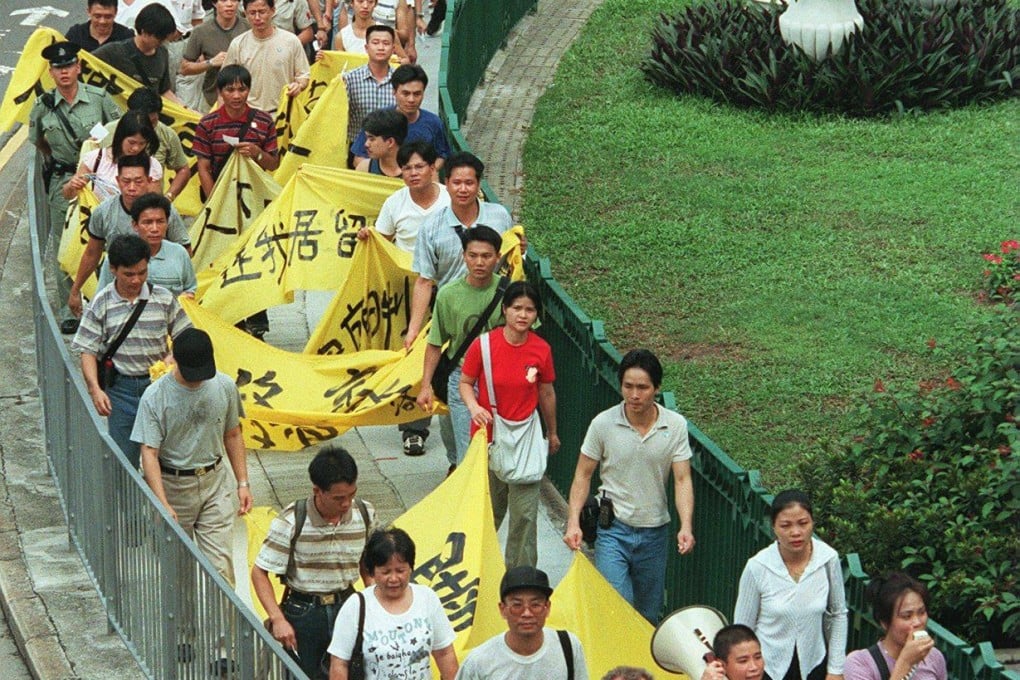June 26, 1999: Beijing approves Hong Kong Basic Law reinterpretation on right of abode
- A section of Article 24 will now mean that mainlanders born before one of their parents became a permanent resident of Hong Kong do not have right of abode

By Chris Yeung
Beijing yesterday approved a reinterpretation of Basic Law provisions in a move which overturns a Court of Final Appeal ruling and revokes the right of abode for more than 1.4 million mainland residents.
The Standing Committee of the National People’s Congress (NPC) passed unanimously a government request to reinterpret sections under Article 22 and 24 of the mini-constitution, following a three-hour discussion on Tuesday. One of the 140 members of the Standing Committee did not press the button to vote.
Members accepted the court was wrong in not seeking an interpretation from the NPC before its final ruling. They also found the court’s interpretation did not reflect the “true legislative intent”.
According to the interpretation that will be gazetted by the Government tomorrow, a section of Article 24 will now mean that mainlanders born before one of their parents became a permanent resident of Hong Kong do not have right of abode.